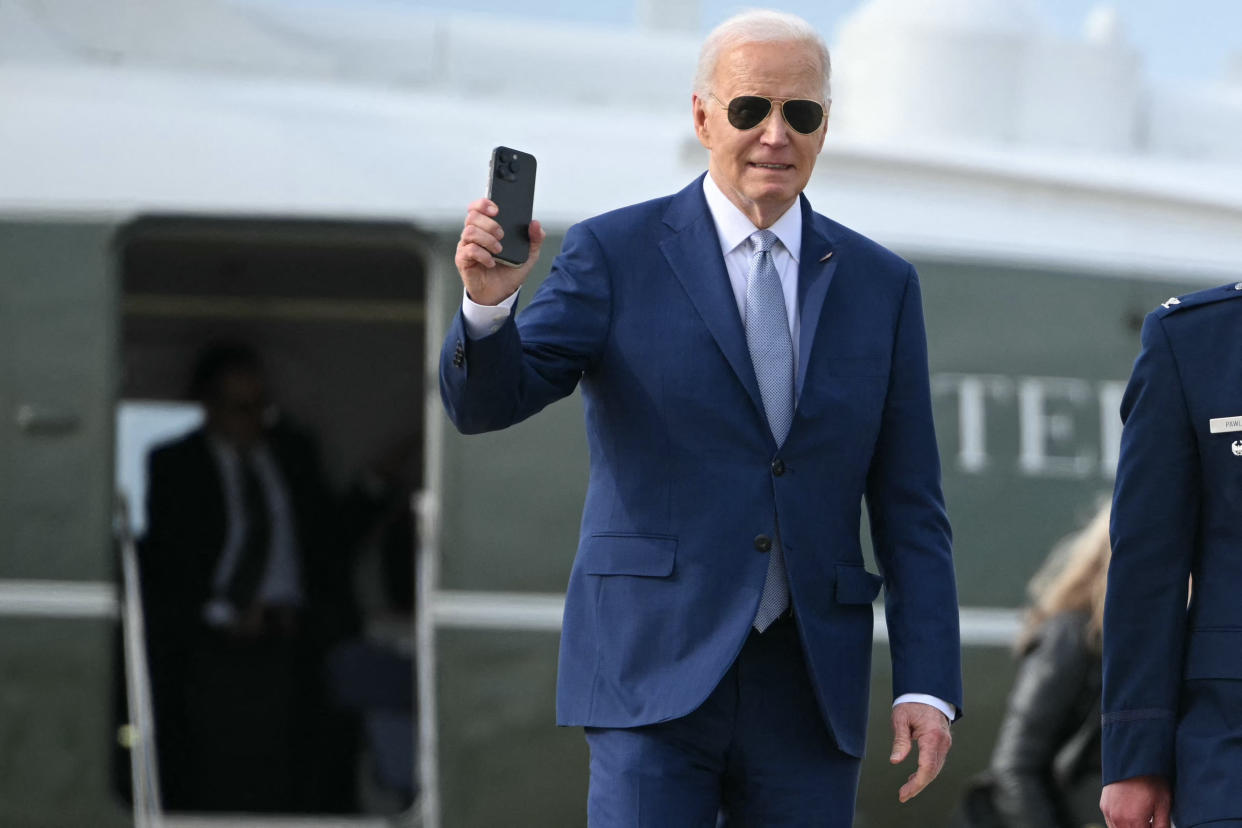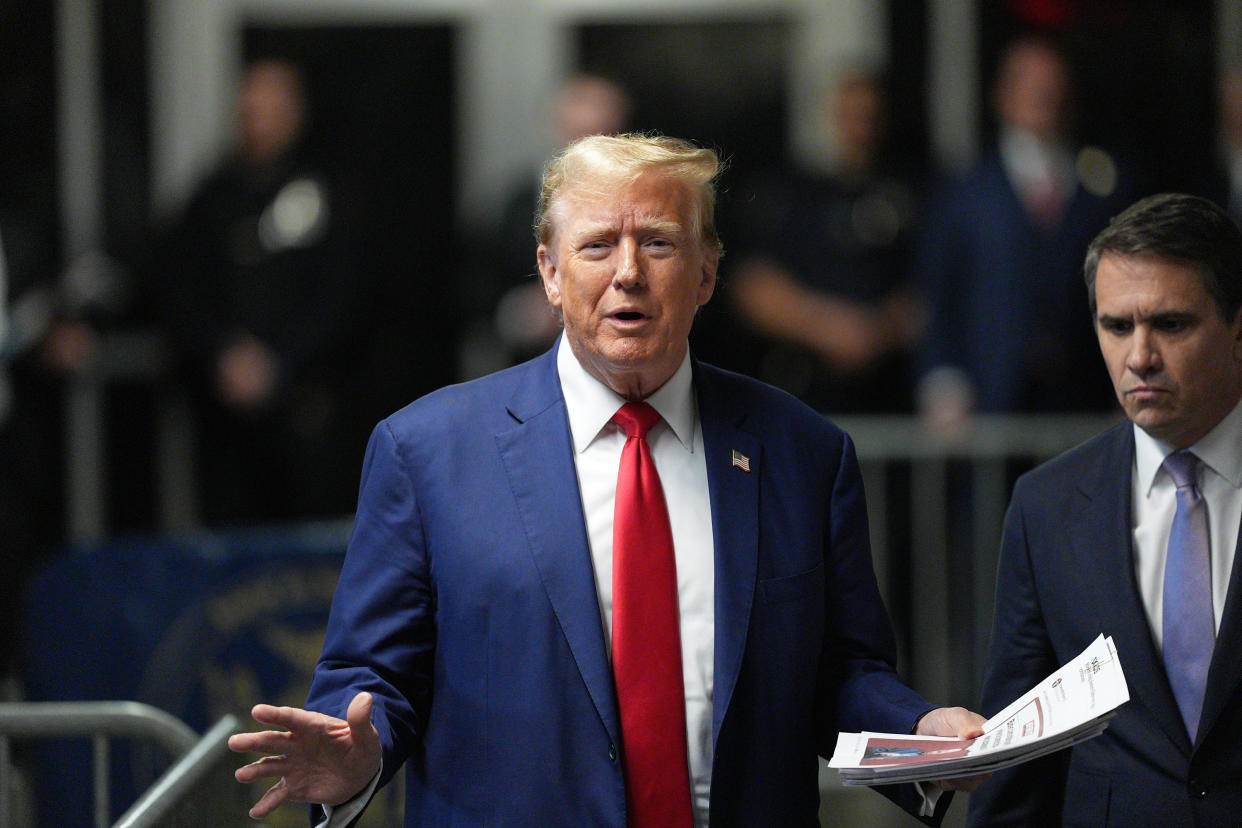Biden's coming new tariffs on China reflect 'lessons learned'
A sweeping White House action to raise tariffs on China as early as this week "reflects lessons learned" about the behavior of the country, according to a former official who helped lead the government's review of what duties should be imposed.
The White House announcement expected Tuesday is the culmination of a two-year investigation and reflects economic damage that China already inflicts on the US, says Greta Peisch, who until recently was general counsel in the office of the US Trade Representative.
She cited unfair trading practices in areas like solar panels and electric vehicles.
"We've seen the impact of China's industrial policy and excess capacity in a number of sectors," she added.
The Biden government review began in 2022 and is focused on duties that were first imposed in the Trump administration. Its apparent conclusion this week could impact tariffs on a range of industries from electric vehicles to batteries to solar power to critical minerals.
Bloomberg was the first to report the administration's plan to announce the results of this long-awaited review.
The announcement will also quadruple tariffs on EVs from China, according to a Wall Street Journal report. That move could raise the tariff rate to roughly 100% from its current level of 25%.

During a press conference Friday, China's Foreign Ministry responded to the reports by charging that "the US continues to politicize trade issues, abuse the so-called review process of Section 301 tariffs and plan tariff hikes."
"China will take all necessary measures to defend its rights and interests," the spokesperson added.
'We've seen the damage here in America'
Next week's likely announcement also comes on the heels of another Biden move that has angered China: his call last month to triple tariffs on Chinese steel and aluminum.
China is "not competing, they're cheating," Biden said in announcing that plan, "and we've seen the damage here in America."
The forthcoming action from the White House appears set to impact a wider array of sectors and comes after years of internal debate within the Biden administration over what direction to take on Chinese import duties.
In testimony before Congress last month, US Trade Representative Katherine Tai described the review as an effort to respond to China's unfair practices and take "a serious look at how our existing tools are addressing this problem."
She added at the time that China's unfair practices spanned a range of industries, including "steel, aluminum, solar panels, batteries, electric vehicles, and critical minerals — just to name a few sectors."
Perhaps the industry where cheap Chinese goods have already had the most marked impact is solar panel manufacturing. A coalition of US solar manufacturers filed a petition to the Biden administration just last month saying they have been "injured" by inexpensive Asian imports.
Figures like Treasury Secretary Janet Yellen and Commerce Secretary Gina Raimondo have also been part of the administration debate about striking the right balance between new duties on strategically competitive areas of the economy and potentially lowering some duties on consumer goods.
It's unclear if the new national security tariffs likely to be announced next week will be paired with the lowering of other duties; details of Biden's plans remain sketchy.
Peisch, who helped lead the review under Ambassador Tai, noted that there was a middle ground between new duties and consumer prices.
"It is a balance, but I think the focus has been on ensuring that we have these important sectors that are good employers here domestically," she said.
She also noted the ample debate about the link between inflation and tariffs and whether lessening current US duties would have a marked impact on prices.
"Generally, the answer was no, that removing tariffs wasn't going to stop inflation," said Peisch, who is now a partner at the D.C. law firm Wiley Rein.
A study from the Tax Foundation of Trump's varied tariffs — most of which Biden has kept in place — found that they are set to reduce long-run GDP by 0.21% and cost the economy the equivalent of 166,000 jobs.
The politics of tariffs
Biden is facing off this fall against former President Donald Trump, who is proposing historically high new tariffs. They include up to 60% duties on many Chinese goods and 10% levels on other major trading partners.
Trump also floated the idea of a 100% duty on all automobiles from Mexico during a recent Time interview but left the door open to only doing that in retaliation.
This week's announcement is set to further the contrast between the two presidential candidates. Both are seeking to push duties upwards, but they have competing approaches.
In a recent interview, longtime trade policymaker Bill Reinsch summed up the differences between the two by describing Biden's approach to trade as one of sticks and carrots.
Biden offers some credits and incentives while also saying, "There are some things that we need to produce in this country for security reasons and that is chips, batteries, critical minerals, PPE, pharmaceuticals."
Trump, on the other hand, "is all stick, no carrot."

Trump allies say he will allow manufacturing to grow organically in the US, but it's an approach often criticized by Biden allies and some trade experts as being too blunt. At such high levels, some also worry it could spur inflation.
Biden's approach, his allies insist, is one that is intended to be more strategic and only protect the areas of the economy where the national security need is highest.
"This is part of a pattern of being targeted on particular concerns," says Peisch, noting other recent administration actions have been "pretty tailored and targeted."
Ben Werschkul is Washington correspondent for Yahoo Finance.
Click here for politics news related to business and money
Read the latest financial and business news from Yahoo Finance
